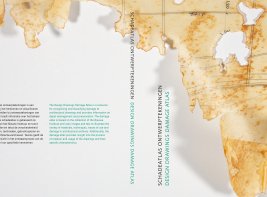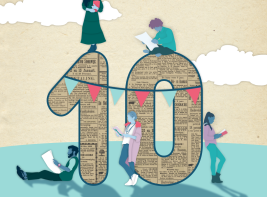The KB does not want commercial companies to use digital resources without permission for training AI. That goes against the AI principles established by the KB. The KB has since taken measures to restrict this use and will be releasing a statement on this today.
Generative AI
Generative Artificial Intelligence (AI) is a form of artificial intelligence that can generate new material automatically. This type of AI model is trained using existing data such as text or images from which the model extracts common patterns such as certain word combinations. A chatbot like ChatGPT then uses this to write a new text based on the input that you provide. The more training data are used, the better the results of the AI model.
Respecting copyright and privacy
The KB makes a lot of the work of writers, illustrators and publishers accessible online. These digital resources are imported by commercial AI companies on a large scale in order to train AI models.
'We believe that AI applications should be created in an ethically responsible manner. For example, we believe it is important for copyright to be respected, for sources to be indicated and for personal data to be protected', explains KB management team member Martijn Kleppe. 'With a lot of commercial AI companies, that is not the case. They do not ask permission to import these data and are not transparent about how these data are used.'
In order to restrict the use of digital resources by commercial AI companies, the KB has adjusted the terms of use for the Delpher and DBNL websites and taken technical measures. Kleppe: 'Naturally, we will ensure that normal use of our digital resources will not be hindered.'
Access as open as possible
According to Kleppe, it remains KB policy to provide access to information as openly as possible. 'An important goal of the KB is to encourage research based on our collections as much as possible. In doing so, we embrace digital developments and the possibilities of AI. But in a way that fits with the AI principles that we as KB set out in 2020.'
On 12 January, the KB will be taking part in Public Domain Day at Beeld & Geluid. The question as to whether copyright-free heritage should be made available for AI training will be addressed during a panel discussion on the day. For more information, visit the Public Domain Day website.
The KB is also currently involved in the development of the Dutch open language model GPT-NL which represents an important step towards establishing the transparent, fair and verifiable use of AI.



